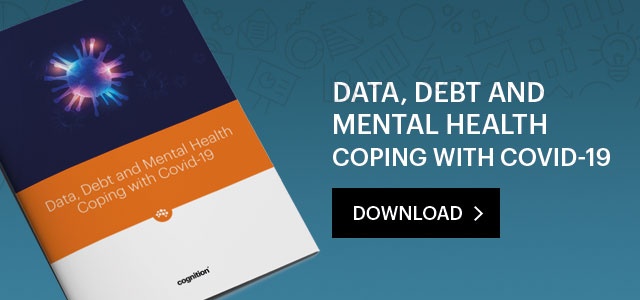The debt burden on economies, businesses and individuals has increased dramatically during the pandemic.
The effects of this burden on people’s financial and mental health was the theme of a Cognition webinar with special guest Katie Alpin, Interim Chief Executive of the Money and Mental Health Institute.
Interviewed by Cognition co-founder, Dr. Peter Hughes, the discussion started by highlighting the story of Jerome Rogers, whose story was featured in a BBC documentary, Killed by Debt.
Jerome dreamed of earning £1,500 a month as a courier delivering blood and medical supplies to hospitals. After being unable to pay two £65 fines for riding his motorbike in a bus lane and for taking a prohibited right turn, the fines escalated into a debt of more than £1,000. When bailiffs repossessed his motorbike, Jerome felt he had no way out and he took his own life.
During the webinar, Katie Alpin, who worked with Jerome’s family in raising awareness of the impact of debt on mental health, said that over 17 million people in the UK have savings of less than £100 and a quarter of the entire UK workforce are financially insecure.
With the majority of UK citizens worried about the financial effects of COVID-19 and more than half of all people with a debt problem also having a financial problem, Katie stressed the importance of breaking the feedback loop between debt and feelings of helplessness, loss of control and despair.
View the Data, Debt and Mental Health Webinar.
The pandemic has not only increased personal debt, it’s also had a detrimental effect on national and commercial debt. With GDP plunging around the world, we are only at the beginning of a long downturn which will see many businesses fail.
What, then, is to be done?
In our guide, Data, Debt and Mental Health, we argue that a rational, data-driven approach to balance the competing demons of economic activity and protective restrictions, is the only way to minimise the damage done by the pandemic.
You can download it here and it’s essential reading for anyone wanting to understand the current situation through the lens of psychology as well as statistics and economics.





